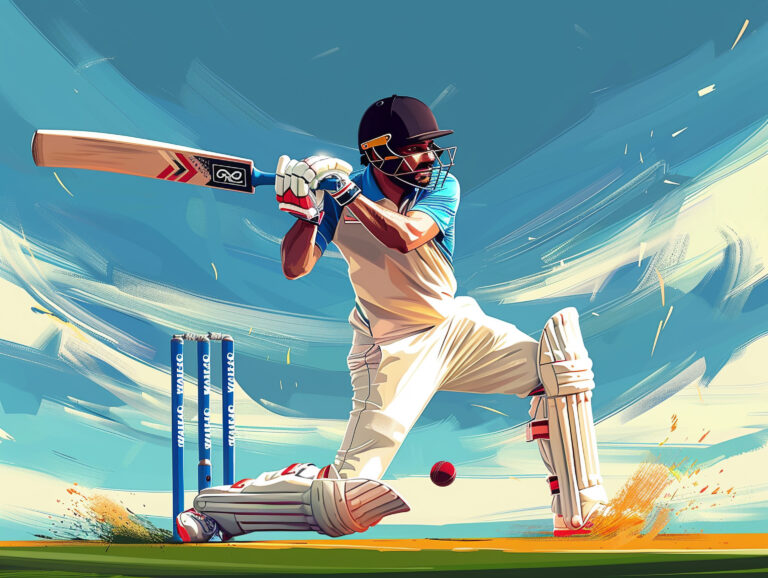The Future of Music Production and Interactive Music
laser 247 new id, lotus365win, sky247 com login password:The Future of Music Production and Interactive Music
The world of music production has come a long way since the days of analog recording and physical mixing boards. With advancements in technology, music producers now have a plethora of tools at their disposal to create captivating and innovative music. One of the most exciting developments in recent years is the rise of interactive music, which allows listeners to engage with music in new and immersive ways.
In this blog post, we will explore the future of music production and interactive music, discussing the latest trends and technologies shaping the industry. From AI-powered music composition tools to virtual reality music experiences, the possibilities are endless. So let’s dive in and discover what the future holds for music production.
The Rise of AI in Music Production
Artificial intelligence (AI) is revolutionizing every industry, and music production is no exception. AI-powered tools are now being used to assist musicians and producers in creating music more efficiently and creatively. For example, AI can analyze music trends and patterns to help artists write hit songs or even generate entirely new musical compositions.
With AI, music producers can now access a vast database of sounds, samples, and loops to enhance their tracks. AI algorithms can also assist in mixing and mastering music, allowing producers to achieve professional-quality results without the need for expensive studio equipment or years of experience.
The incorporation of AI in music production has opened up a world of possibilities for artists and producers, allowing them to experiment with new styles and genres. As AI technology continues to evolve, we can expect even more innovative tools to emerge, further pushing the boundaries of music production.
The Future of Interactive Music
Interactive music is a relatively new concept that is reshaping the way we experience and engage with music. From interactive music videos to virtual reality concerts, the possibilities for interactive music are endless. One of the most exciting developments in interactive music is the use of technology to create personalized music experiences for listeners.
For example, companies like Spotify are using AI algorithms to analyze listeners’ music preferences and create personalized playlists tailored to their tastes. This level of customization allows listeners to discover new music and artists they may not have come across otherwise, enhancing their overall music listening experience.
Virtual reality (VR) is another technology that is revolutionizing the music industry, allowing artists to create immersive virtual concerts and experiences for their fans. With VR, fans can feel like they are attending a live concert from the comfort of their own home, complete with interactive elements and 360-degree views of the stage.
The possibilities for interactive music are truly endless, and as technology continues to advance, we can expect even more innovative and immersive experiences to emerge in the future.
The Role of Blockchain in Music Production
Blockchain technology is another game-changer in the music industry, offering a secure and transparent way to track and monetize music rights. With blockchain, artists can ensure that they are properly compensated for their work, as each transaction is recorded on a decentralized and tamper-proof ledger.
Blockchain also has the potential to revolutionize the way music is distributed and consumed, allowing artists to bypass traditional record labels and streaming platforms. By using blockchain technology, artists can directly connect with their fans and receive fair compensation for their music.
Additionally, blockchain can help prevent issues like music piracy and copyright infringement, as each song is securely stored on the blockchain and can be traced back to its original creator. As more artists and producers adopt blockchain technology, we can expect to see a more transparent and equitable music industry emerge.
The Evolution of Music Streaming Platforms
Music streaming platforms have become the primary way that people consume music in the digital age. With platforms like Spotify, Apple Music, and Tidal, listeners have access to a vast library of music at their fingertips, anytime and anywhere. These platforms have revolutionized the way music is discovered, consumed, and shared, making it easier for artists to reach a global audience.
One of the key trends shaping the future of music streaming platforms is the rise of exclusive content and collaborations. Artists are now releasing exclusive tracks and albums on specific platforms, creating a sense of exclusivity and driving subscriber growth. These exclusive deals are also benefiting artists financially, as they can negotiate higher royalties and advance payments for their music.
Another trend in music streaming is the integration of social features, allowing listeners to share and discover music with their friends and followers. Platforms like Spotify and Apple Music now include features that allow users to create and share playlists, follow their favorite artists, and discover new music based on their friends’ recommendations.
The Future of Music Production: A Summary
As technology continues to advance, the future of music production is looking brighter than ever. From AI-powered tools to interactive music experiences, the possibilities for artists and producers are truly endless. The rise of AI in music production is revolutionizing the way music is created, allowing artists to experiment with new sounds and styles.
Interactive music is also reshaping the way we experience and engage with music, with virtual reality concerts and personalized playlists becoming more prevalent. Blockchain technology is providing a secure and transparent way to track and monetize music rights, ensuring that artists are fairly compensated for their work.
Music streaming platforms are also evolving, with the rise of exclusive content and social features making it easier for artists to connect with their fans and reach a global audience. As we look towards the future of music production, one thing is clear: technology is transforming the industry in ways we never thought possible.
FAQs
Q: How is AI being used in music production?
A: AI is being used in music production to assist musicians and producers in creating music more efficiently and creatively. AI-powered tools can analyze music trends and patterns, help artists write hit songs, and generate new musical compositions.
Q: What is interactive music?
A: Interactive music is a concept that allows listeners to engage with music in new and immersive ways. This can include interactive music videos, virtual reality concerts, and personalized playlists tailored to listeners’ music preferences.
Q: How is blockchain technology changing the music industry?
A: Blockchain technology is providing a secure and transparent way to track and monetize music rights, ensuring that artists are properly compensated for their work. Blockchain technology also has the potential to revolutionize the way music is distributed and consumed.
Q: What are some trends shaping the future of music streaming platforms?
A: Some trends shaping the future of music streaming platforms include the rise of exclusive content and collaborations, the integration of social features, and personalized recommendations based on listeners’ music preferences.
Q: What can we expect from the future of music production?
A: In the future, we can expect to see even more innovative tools and technologies emerge in music production, allowing artists and producers to create captivating and immersive music experiences. AI, interactive music, blockchain technology, and music streaming platforms will continue to shape the industry and provide new opportunities for artists and listeners alike.
In conclusion, the future of music production is bright, with advancements in technology opening up new possibilities for artists and producers. From AI-powered tools to interactive music experiences, the future of music production is sure to be exciting and innovative. As technology continues to evolve, we can expect even more groundbreaking developments in the industry, providing artists with new ways to create and share their music with the world.







